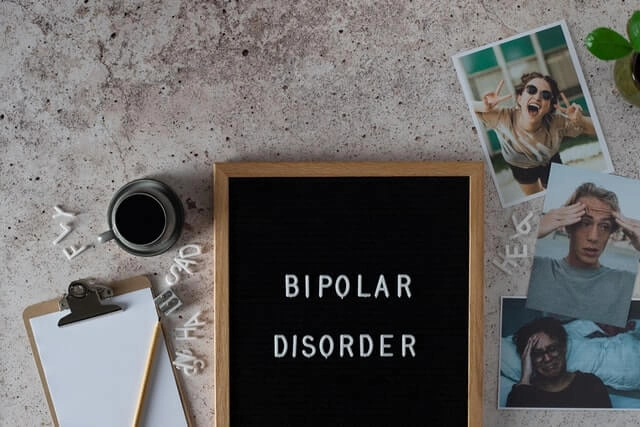Autism and Bipolar: Some of the symptoms of bipolar disorder and autism spectrum disorder (ASD) are shared, and the two conditions can occasionally coexist.

A neurodevelopmental variation called autism impacts a person’s ability to interact, behave, learn, and communicate. A mood illness known as bipolar disorder causes episodes that affect a person’s mood, energy, and behavior.
Although certain autistic traits can resemble bipolar symptoms, autism and bipolar illness are distinct conditions. According to estimations, between 5% and 8% of individuals with autism also have bipolar illness. This essay explores the relationship between autism and bipolar illness, as well as the experiences of people with autism who have bipolar disorder.
The Link Between Bipolar Illness and Autism
People with autism may also have bipolar disorder, which causes them to experience their symptoms in a variety of ways.
Megan is autistic and suffers from bipolar disorder; she discussed her experiences with bipolar disorder as an autistic individual. “Bipolar symptoms already come with risky behavior,” she said, “but I think I ended up in more dangerous situations than perhaps I would have if I weren’t autistic because I didn’t recognize the different social innuendos.” She also mentioned that her mood symptoms might be “exacerbated by my sensory issues, both external and internal sensory triggers.”
According to one study, about 30% of young people who have bipolar I disorder (which is marked by severe manic episodes) are also autistic. The study also revealed that people with autism tend to experience symptoms of bipolar disorder at an earlier age.
Aside from the fact that bipolar disorder presents differently in autistic individuals, members of the autistic population are more prone to the illness than those who are not autistic. According to some research, autism and bipolar illness have common genetic links. A study found that autism and bipolar illness have similar patterns of gene expression across the world, which may account for why they occasionally coexist.
The manner in which a gene interacts with its surroundings is known as gene expression. It functions like an on/off switch that regulates the synthesis of proteins, including the timing and amount of protein production. Variations in how genes are expressed may account for why some mental illnesses may share similar genetic origins but manifest in diverse ways.
Common Risk Factors
The following are a few characteristics that seem to be more prevalent in persons with autism and bipolar illness than in those without autism and bipolar disorder:
- Having a short attention span
- Attention deficit hyperactivity disorder (ADHD) coexisting
- Concurrent obsessive-compulsive disorder (OCD)
- low spirits
- Having mood symptoms at a younger age
- Racing thoughts
- withdrawing socially
Autism and Bipolar Disorder Have Complications.
The symptoms of bipolar disorder might have a big impact on autistic people in several areas. Young autistic individuals with bipolar disorder appear to have more difficulties in their social interactions than those without the condition, according to evidence.
The onset of bipolar symptoms is typically earlier in autistic individuals who acquire the illness than in non-autistic people who have it. This may impair a person’s capacity to function in key areas of their life, such as relationships, education, self-care, and other crucial aspects of their life, which can result in disruptions. An extreme concentration on a goal or activity might also indicate bipolar illness.
The Bipolar Disorder and Autism Are Diagnosed.
It might be harder for autistic individuals to receive an accurate diagnosis since a lot of the research on bipolar disorder is centered on the symptoms of non-autistic people. When someone with autism has bipolar illness, they may experience the following symptoms:
- Aggressiveness
- Elevated or sad moods
- Distraction
- Repeating the same actions over and over
- Impulsiveness
- Irritability
- Racing ideas
- excessive talking or speaking quickly
- Problems with sleeping
Bipolar Disorder vs. Autism

A doctor may examine the character, length, manifestation, age of onset, and severity of symptoms in order to tell the difference between autism and bipolar disorder.
Impulsive conduct is common in those with autism and bipolar disorder, but this symptom will alternate with bipolar disorder and not with autism.
In contrast to the typical onset age of adolescence or young adulthood for bipolar illness, autism is a neurodevelopmental difference that begins in early childhood.
People with autism may have difficulties with social interaction and awareness, speech variations, sensory sensitivities, and intellectual challenges. These symptoms are not usually linked to bipolar disorder.
Extreme depression can be brought on by bipolar disorder, and it may also induce suicidal ideations. These mood episodes are not regarded as a symptom of autism, although those with the disorder may also have depression.
Therapy and Assistance for Bipolar Disorder and Autism
Both autism and bipolar disorder are lifelong conditions. Treatments for bipolar disorder aim at helping people cope with symptoms and improving their capacity to carry out their daily tasks. Many autistic individuals benefit from supportive services that help them thrive in a society that is not built to suit their requirements, even if autism is not a disease.
Because everyone has varying needs for the amount of assistance they need to flourish, there is no one treatment method that works for everyone.
Drugs
The common treatment for bipolar illness includes the use of medication to help regulate mood. Following her first manic episode, Megan informed us that medicine was “the most important thing to get back on track.”
It should be emphasized that bipolar disorder should not be treated with antidepressants alone. These drugs can either cause a manic or hypomanic episode to occur or make mood episodes cycle quickly.
Low-dose antipsychotics may be used in conjunction with mood stabilizers in autistic people who have bipolar disorder. Valproic acid and other antiseizure drugs that regulate mood may be preferred. Risperidone and aripiprazole, two examples of atypical antipsychotics, can aid in managing irritability symptoms in children.
Psychotherapy
This method can aid in enhancing current talents, enhancing communication skills, improving social skills, and fostering adaptive skills necessary for independent living. Support for autism can start in early childhood, whereas therapy for bipolar disorder typically begins when the illness is initially diagnosed in adolescence or early adulthood.
Living With Autism and Bipolar Disorder
There are techniques that can help autistic individuals better manage their bipolar illness in addition to finding the right therapy.
Changes in Lifestyle
Self-care practices can be a crucial component of coping well with bipolar illness and autism. Some helpful strategies include:
- Participating in regular physical activity
- Adopting a nutritious diet
- Getting enough sleep
- Tracking changes in mood
- Understanding how to identify stimuli that influence mood
- controlling stress through the use of relaxation methods
- Maintaining a daily schedule
- Looking for emotional support
- abstaining from drug and alcohol use
- Having a strategy for suicide prevention
According to Megan, she has a regimen that helps her see if she is also showing signs of bipolar disorder. Although these methods can enhance daily life, they cannot substitute for expert care. You can optimize your talents and safeguard your well-being by making lifestyle adjustments and getting tried-and-true treatments for autism and bipolar illness.
In summary
When autistic individuals have symptoms of bipolar illness, they face particular challenges and obstacles. Although it might be more challenging for autistic patients to receive an accurate diagnosis than their non-autistic counterparts, there are effective treatments and therapies for these lifelong disorders.
It can be challenging to identify autism and bipolar disorder symptoms, especially in cases when an autistic individual has trouble expressing their feelings, moods, and actions. Since the coexistence of both illnesses may influence the course of treatment, it is crucial to make an accurate diagnosis. Speak to a doctor or mental health expert if you or someone you care about is exhibiting signs of autism or bipolar illness.ou or someone you love is experiencing symptoms of autism or bipolar disorder, talk to a doctor or mental health professional.







